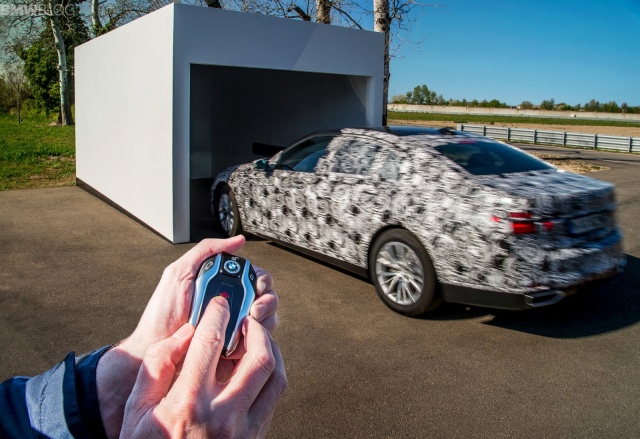BMW, like most major car manufacturers, is getting to the point where it has mature semi-autonomous driving technology—lane keep assist, adaptive cruise control, self parking—and is now looking towards fully autonomous solutions. The new 2016 BMW 7 Series, unveiled just a couple of days ago, has features such as “speed limit obedience,” which uses a forward-facing camera to look for new speed limits; and self-parking with the driver outside of the car: just push a button on the key fob and marvel as the car parks itself (pictured top).As for BMW’s fully self-driving aspirations, however, the company is keeping its cards much closer to its chest than Google, which already has a fleet of autonomous cars driving the streets of California. Established car makers like BMW and Mercedes seem content to forge ahead with semi-autonomous features, while upstarts like Google test the fully autonomous waters. Google gets all the positive PR and column inches, of course—but it also gets to deal with all the legislative roadblocks that need to be defeated before driverless cars are a reality.
Read on, source: BMW and Baidu will have a self-driving car in China “before the year is out” | Ars Technica
